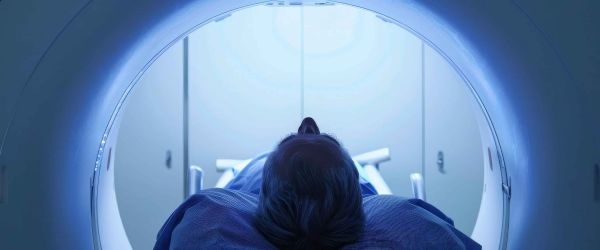Traveling Nuclear Medicine Technologist Career Spotlight

Nuclear Medicine Technologist
Some travel specialties, like Nuclear Medicine Technology, combine cutting-edge technology with patient care to provide critical diagnostic information. At FlexCare, we are proud to spotlight the career path of a traveling Nuclear Medicine Technologist (NMT). This role not only offers a unique and rewarding professional path but also the opportunity to explore different locations while contributing to patient health and well-being.
What is a Nuclear Medicine Technologist?
A Nuclear Medicine Technologist is a healthcare professional who specializes in the use of radioactive materials to diagnose and treat various diseases. These technologists operate sophisticated imaging equipment, such as gamma cameras and PET scanners, to capture detailed images of how the body functions. The information gained from these images is vital in diagnosing conditions like cancer, heart disease, and other abnormalities.
Skills Needed
To excel as a Nuclear Medicine Technologist, several key skills are essential:
- Technical Proficiency: Understanding and operating complex imaging equipment requires a high level of technical knowledge. NMTs must be comfortable with technology and troubleshooting equipment issues.
- Attention to Detail: Precision is crucial in administering radioactive materials and capturing accurate images. Technologists must adhere to strict protocols to ensure patient safety and accurate results.
- Analytical Skills: Interpreting the images and collaborating with physicians to provide diagnostic information requires strong analytical abilities.
- Interpersonal Skills: NMTs work closely with patients, explaining procedures and alleviating concerns. Good communication skills and a compassionate demeanor are important for patient care.
- Problem-Solving: Every patient is unique, and technologists must be adept at adjusting procedures to meet individual needs and address unexpected challenges.
Certifications and Education
Becoming a Nuclear Medicine Technologist requires specialized education and certification:
- Education: Most NMTs begin with an associate’s degree in nuclear medicine technology, though some pursue a bachelor’s degree. These programs include coursework in anatomy, chemistry, physics, and radiopharmacy, as well as clinical experience.
- Certification: Certification is typically required and highly valued in this field. The Nuclear Medicine Technology Certification Board (NMTCB) and the American Registry of Radiologic Technologists (ARRT) offer certification exams. Continuing education is also important to maintain certification and stay current with advancements in the field.
- Licensure: Depending on the state, licensure may be required. Requirements vary, so it’s important to check with the specific state where you plan to work.
What to Expect as a Traveling Nuclear Medicine Technologist
Choosing a career as a traveling Nuclear Medicine Technologist offers a unique set of benefits and experiences:
- Variety of Work Environments: Traveling NMTs have the opportunity to work in a range of settings, from large hospitals and specialized clinics to smaller community healthcare facilities. This variety can enhance your skills and experience.
- Flexibility and Adventure: One of the biggest draws of a traveling position is the ability to explore different parts of the country. Each assignment brings new challenges and opportunities, allowing you to grow both professionally and personally.
- Competitive Compensation: Traveling healthcare professionals often enjoy higher pay rates, along with benefits such as tax-exempt stipends and health insurance. FlexCare provides comprehensive support to ensure your assignments are rewarding and stress-free.
- Professional Growth: Working in diverse settings exposes you to different medical practices and patient populations, broadening your expertise and enhancing your resume.
Tips for Success
If you’re considering a career as a traveling Nuclear Medicine Technologist, here are some tips to help you succeed:
- Stay Organized: Keep track of certification renewals, licensure requirements, and assignment details. An organized approach will help you manage the logistics of traveling and ensure compliance with professional standards.
- Network: Building relationships with colleagues and supervisors across different assignments can provide valuable support and career opportunities.
- Embrace Learning: Each new assignment is a chance to learn and grow. Stay curious and open to new techniques and technologies.
- Prioritize Self-Care: Traveling can be demanding, so it’s important to take care of your physical and mental health. Find time for relaxation and activities you enjoy.
A career as a traveling Nuclear Medicine Technologist is both exciting and fulfilling. At FlexCare, we are dedicated to helping you navigate this dynamic career, providing opportunities that align with your goals and lifestyle. With the right skills, education, and support, you can thrive as a traveling NMT, making a meaningful impact on patient care while exploring new horizons.
Ready to embark on this rewarding journey? Contact FlexCare S1NGLEPOINT recruiter today to learn more about our current opportunities for traveling Nuclear Medicine Technologists. Your next adventure in healthcare awaits!